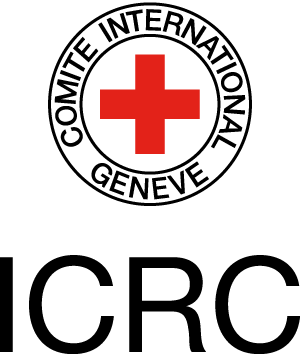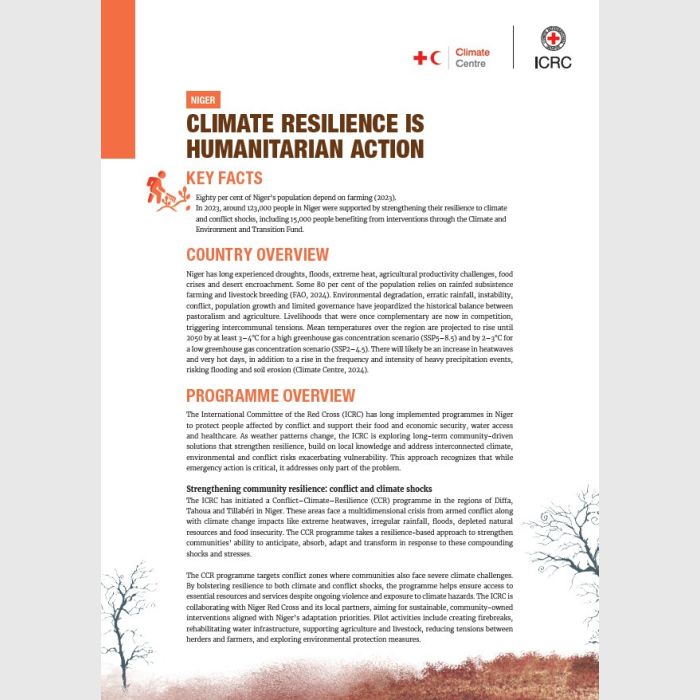We use cookies to make your experience better. To comply with the new e-Privacy directive, we need to ask for your consent to set the cookies. Learn more.
Niger: Climate Resilience in Humanitarian Action
This case study highlights the ICRC’s Conflict–Climate–Resilience (CCR) programme in Niger, showcasing how integrating climate adaptation into humanitarian action can bolster community resilience. With 80% of Niger’s population dependent on farming, climate change, environmental degradation, and conflict have heightened vulnerabilities, straining resources and fueling intercommunal tensions.
The CCR programme focuses on conflict-affected regions like Diffa, Tahoua, and Tillabéri, addressing challenges such as extreme heat, erratic rainfall, and flooding. By combining emergency aid with long-term interventions, the initiative strengthens communities' capacity to adapt, sustain livelihoods, and manage resources effectively. Activities include rehabilitating water infrastructure, promoting climate-smart agriculture, mitigating farmer-herder tensions, and introducing renewable energy solutions.
Innovative projects like solar-powered pumps for women’s gardening groups exemplify sustainable solutions that empower vulnerable populations. This holistic, participatory approach demonstrates the ICRC’s commitment to futureproofing humanitarian actions while fostering resilience to both climate and conflict shocks.
In stock
Only %1 left
CHF 0.00


